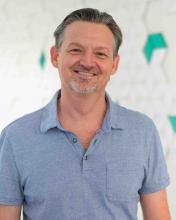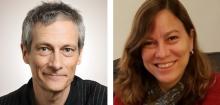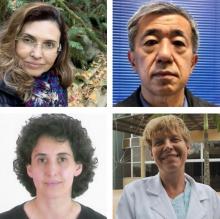In this virtual exchange course, students at UF, the University of Grongigen (Netherlands), and Sao Paulo State University (UNESP) will collectively investigate connections between notions of borders, discrimination, belonging, and health. Through ethnographic and participatory action research methods, students will conduct interviews with community members in three countries and collectively compile global health data, media, and personal reflection and discussion. Through a collaborative play-building process guided by the course instructors, students will organize and transform their research into an ethnographic documentary play. This play will function as a vehicle for research dissemination and will be shared globally through a live-streamed reading. Students interested in health, public health, health disparities, global identities, cultural exchange, and applied (arts-based) research methods are encouraged to participate in this unique and novel opportunity. Previous theatre experience is welcome but not necessary.
- Recognize the concepts of borders, discrimination and global health
- Understand the research methodology of ethnography and participatory action
- Recognize the practice of planning and conducting interviews with community members
- Understanding of how multiple disciplines can be integrated to investigate a complex problem
- Maintain an empathetic behavior
- Develop a collaborative learning in interdisciplinary and cultural diverse teams
- Sustain respect with cultural diversity
- Show awareness about the project participant’s needs
- Follow instructions about the process of planning and conducting community interviews
- Organize a sharing space to work collaboratively
- Create an integrated and inclusive climate between all the participants.
- Develop technical skills to create interview questions and the final report format
Student-to-Student Project
Asynchronous Activities: 2 hours/wk
Individual Work: 2 hours/wk
Messaging Applications (WhatsApp)
Learning Management Systems (Canvas)
Collaborative Authoring Platforms (Google Suite)
Messaging Boards/ Video Boards (Flipgrid, Pladlet)
- Create a report on your home country’s health care system
- Define barriers to health access for minority and migrant populations in your home country
- Contrast and compare health systems and barriers to access
- Students co-develop an interview guide/set of questions
- Students interview a team member from another team/country
- Conduct 2 interviews with minority/migrant community members
- Conduct 2 interviews with dominant culture community members
- Conduct 2 interviews with a health care provider
- Transcribe and translate interviews
- Conduct thematic analysis of interviews
- Contrast and compare themes across countries
- Juxtapose interviews and data and create a 10 minute scene/reading



